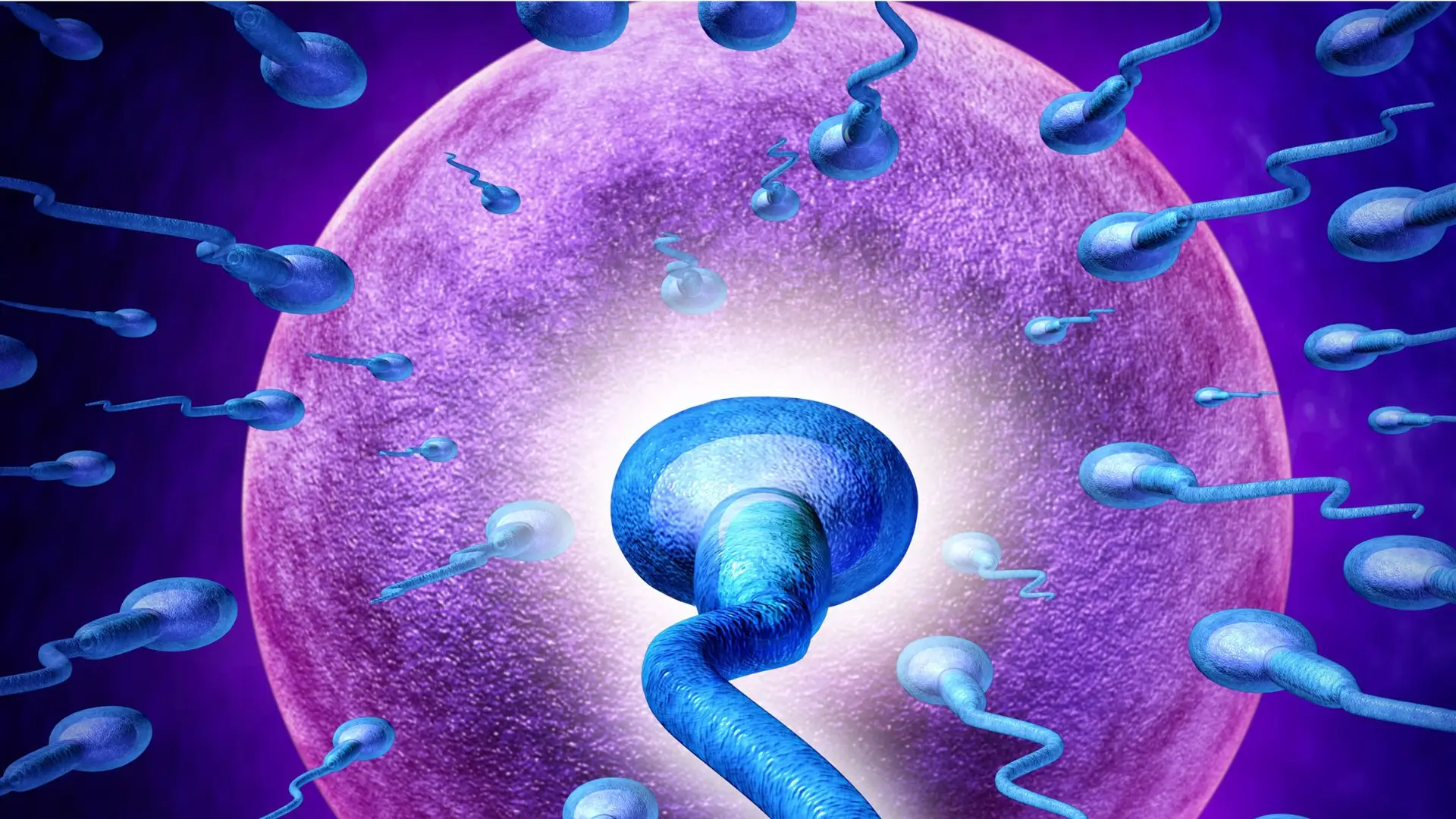
Chronic Pain and Fertility
Chronic pain can significantly impact various aspects of life, including fertility. The relationship between chronic pain and fertility can be complex and multifaceted. Here are a few points to consider:
Understanding Hormonal Imbalance: How It Can Affect Your Body
Hormones are like tiny messengers in our bodies, guiding important functions such as growth, mood, and even our ability to have children. When everything works smoothly, it’s like a well-orchestrated dance. But sometimes, things can get a little offbeat, leading to what we call hormonal imbalance.
Picture this: your body has its own control center, the endocrine system, which produces hormones. These hormones act as signals, telling different parts of your body what to do. But when something disrupts this delicate balance—like chronic stress or certain health conditions—it can throw these signals out of whack.
One common disruptor is chronic pain. When you’re dealing with ongoing pain, your body goes into high alert, releasing stress hormones like cortisol. Now, cortisol isn’t all bad—it helps us handle stressful situations. But when it’s constantly high due to chronic pain, it can mess with other hormones responsible for reproduction.
For women, this imbalance might throw menstrual cycles off course, causing irregular periods or even stopping ovulation altogether. In men, it could affect sperm production and quality. Essentially, the stress from chronic pain can send mixed signals to the body, affecting the hormones needed for fertility.
Certain medications used to manage chronic pain can also join the hormone haywire. Opioids, for instance, can interfere with hormone production essential for reproduction.
The good news? Understanding this imbalance can help. By working with healthcare experts specializing in pain management and reproductive health, you can explore ways to manage pain while keeping an eye on your hormonal harmony. Techniques like stress reduction, healthy lifestyle choices, and targeted treatments can help steer those hormones back into their synchronized dance, supporting both pain management and fertility goals.
Navigating Medications: What You Need to Know for Managing Chronic Pain
When it comes to managing chronic pain, medications can be superheroes, swooping in to help ease those persistent aches and discomforts. But just like in a comic book, every hero has its own story—and so do these medications.
There’s a league of medications out there, each with its own special powers and possible side effects. Take NSAIDs (Nonsteroidal Anti-Inflammatory Drugs) like ibuprofen—they’re great at battling inflammation, but they might cause tummy troubles if not taken with care. Then, there are the opioids, powerful pain relievers that can make pain more manageable but need to be handled cautiously due to potential side effects like drowsiness or constipation.
Now, here’s the twist: while these medications can save the day by taming pain, some of them might have a side quest—they could impact fertility. Opioids, for instance, might affect hormone production, which plays a role in fertility for both men and women. But fear not! This doesn’t mean you can’t use these medications if you’re planning a family; it just means it’s essential to have a chat with your healthcare professional.
Talking to your healthcare provider is like having a trusted guide in your adventure against pain. They can help you navigate the world of medications, finding the ones that work best for you while keeping an eye on any possible effects on fertility. They might even introduce other heroes into your pain-fighting team, like physical therapy or alternative treatments.
Remember, every hero has strengths and weaknesses. By teaming up with your healthcare provider and keeping communication open, you can find the right balance between managing pain and considering your future plans—making sure your journey is as smooth as possible.

The Emotional Puzzle of Fertility: How Feelings Play a Role
When we talk about having a baby, it’s not just about the physical aspects—it’s also a journey of emotions, hopes, and dreams. But what happens when the road to conception hits some emotional bumps?
Meet the emotional side of fertility. Picture this: you’re dreaming of a little one, but as time goes on without success, emotions like frustration, sadness, or worry might start creeping in. It’s like riding a rollercoaster of feelings—excitement during ovulation, anticipation during the wait, and disappointment when it doesn’t happen.
Sometimes, the stress of trying to conceive can feel like a weight on your shoulders. It might affect your mood, make you feel anxious, or even bring moments of doubt and self-criticism. And here’s the tricky part: these emotional rollercoasters might play a role in fertility itself.
Stress and emotions can influence hormone levels and even disrupt ovulation or sperm production. It’s like a puzzle—when stress pieces take over, they can throw off the balance needed for conception.
But hold on tight! Understanding this emotional rollercoaster and its impact on fertility is a key step. Seeking support from a counsellor, joining a support group, or finding relaxation techniques like yoga or meditation can help ease the emotional load. It’s like having a helping hand to navigate the twists and turns of these feelings.
Remember, taking care of your emotional well-being isn’t just about feeling better—it might also play a part in the fertility journey, helping create a more balanced and supportive environment for the dream of welcoming a new life.#
Physical Limitations:
When chronic pain sets up camp in your life, it’s like an unexpected guest who overstays their welcome. Not only does it bring discomfort, but it might also bring along some unexpected challenges, especially when it comes to starting a family.
Think of chronic pain as a roadblock on the path to parenthood. It can cramp your style, making physical activities like intimacy or even everyday movement a bit more challenging. Sometimes, pain might make certain positions uncomfortable or intimacy less frequent, affecting the timing of conception.
But that’s not all—chronic pain can also lead to fatigue, making it feel like you’re dragging a weight around. Feeling tired all the time can put a damper on things, reducing your energy for intimacy or even just daily activities.
Then there’s the emotional rollercoaster. Dealing with ongoing pain can take a toll on your mood and mental well-being. It’s like trying to focus on a puzzle while someone’s playing loud music in the background. The stress and frustration from chronic pain might indirectly impact fertility by affecting hormone levels or reducing interest in intimacy.
Managing chronic pain while thinking about starting a family isn’t always easy. But here’s the silver lining: by teaming up with healthcare experts specializing in pain management and reproductive health, you can explore strategies to tackle pain while considering your fertility goals. Finding ways to alleviate pain, managing stress, and seeking support can be key steps in making that path to parenthood a bit smoother, despite the hurdles chronic pain might bring.
Underlying Conditions
When it comes to chronic pain, it’s like peeling an onion—sometimes, there’s more beneath the surface. Underneath that ongoing ache or discomfort, there might be specific conditions adding twists to the plot, especially when thinking about growing your family.
Imagine chronic pain as a detective searching for clues. Sometimes, underlying conditions like endometriosis in women or certain urological issues in men can be the hidden culprits affecting both pain and fertility. Endometriosis, for instance, is like a sneaky intruder—it causes tissue similar to the lining of the uterus to grow outside it, leading to pain and potential fertility challenges.
For men, conditions like varicoceles (enlarged veins in the scrotum) can interfere with sperm production or quality, impacting fertility. Other sneaky suspects might include pelvic inflammatory disease or polycystic ovary syndrome (PCOS), affecting women’s reproductive health and potentially causing chronic pain.
These underlying conditions can create a double whammy—they bring their own set of challenges while also intertwining with chronic pain, complicating the path to parenthood.
The good news? Identifying these underlying conditions is like shining a light in the dark—it helps healthcare experts develop targeted strategies to manage both pain and potential fertility issues. Seeking specialized care, discussing concerns with knowledgeable healthcare providers, and exploring tailored treatments can be essential steps in unravelling this complex web of pain and fertility challenges. By digging beneath the surface and addressing these underlying conditions, you might just uncover a clearer path toward your fertility goals.
The Life of Chronic Pain
Click below to view the other sections within the life of Chronic Pain
Click Here